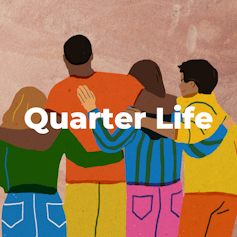Portia from the comedy-drama series The White Lotus is the epitome of Generation Z. As the assistant for a self-absorbed heiress, she embodies both the strengths and flaws of the younger generation: perpetually connected to the digital world, brimming with intelligence and full of untapped potential.
While Portia’s sometimes obnoxious behaviour can be grating, they also render her relatable. In one scene, she ruminates on a time when the world had more to offer:
“You take a picture and then you realize that everybody’s taken that exact same picture from that exact same spot, and you’ve just made some redundant content for stupid Instagram. And you can’t even get lost anymore because you can just find yourself on Google maps.”
It’s a sentiment that captures Gen Z’s struggle with, and desire for, authenticity. Portia’s journey reflects the broader Gen Z experience. Initially adrift, she eventually receives a wake-up call that drives her to take control of her life.
If you, like Portia, are also struggling to meet your boss’ expectations about work, it may help to understand how older generations have shaped management, and how you can thrive in the modern workplace.

No one’s 20s and 30s look the same. You might be saving for a mortgage or just struggling to pay rent. You could be swiping dating apps, or trying to understand childcare. No matter your current challenges, our Quarter Life series has articles to share in the group chat, or just to remind you that you’re not alone.
Read more from Quarter Life:
- Workplace besties: How to build relationships at work while staying professional
- If using LinkedIn makes you feel like an imposter at work, here’s how to cope
- What millennials and gen Z professionals need to know about developing a meaningful career
History’s greatest hustle devotees
Millennials are arguably history’s greatest devotees of hustle culture. Those born between 1981 and 1996 are more likely to work multiple jobs, with many of them working two or more. One in three millennials intends to work for an app-based company like Uber or Lyft, or rent out their home to earn extra income.
Millennials grew up alongside the internet on the heels of the 2008 recession. Faced with a precarious job market and financial instability, many turned their passions into side hustles.
These side hustles range from online courses and coaching to podcasts and social media influencing. For Millennials, these endeavours are seen as a source of happiness, employability and skill development.

Side hustles require them to be efficient, more disciplined and concerned with prioritization and focus. Free time often means switching from the main job to the side hustle, and open weekends are a rarity.
However, for Gen Z and some younger Millennials, the prospect of joining the hustle culture may seem daunting and exhausting. Instead, they want to be financially stable and successful without sacrificing their mental health and well-being.
Generational differences at work
Every generation leaves their mark on the workplace. Millennials in particular, through their ability to process information in a much more streamlined and efficient fashion than any previous generation.
Millennials increased workplace productivity and remodelled leadership trends. They changed the traditional workplace by wanting to matter, by wanting constant dialogue, and by wanting more opportunity and freedom.
The younger generation is just as ambitious, but they, too, are leaving their mark on work culture. 48 per cent of Gen Z small business owners juggle multiple side jobs, while 91 per cent work unconventional hours and 81 per cent work while on vacation. Almost half hold two jobs or more.
But not every young professional is a small business owner or interested in hustle culture — some just want more freedom and a greater sense of self meaning.
Many people in their 20s and 30s are shaking off the typical 9-to-5 career path. For these individuals, success is not only measured in dollars, but also in overall happiness and fulfilment.

Work-life balance
As a young person in the workplace, you might find yourself clashing with your older boss. Somewhat hypocritically, older bosses often view candidates with multiple jobs as lacking commitment, despite having done the same thing themselves.
Bridging the generational gap in the workplace requires open communication and mutual understanding. As a young professional, navigating hustle culture in the workplace can be challenging, but not impossible. Here are some tips for success:
Be conscious of your mental well-being. An older boss might relentlessly pressure you for results and greater productivity, often at your cost and their gain. If you do not pay attention, you will soon find yourself stressed, burned out and likely feeling inadequate.
Define your own priorities. Set clear boundaries between your work and personal life and prioritize tasks based on significance and impact, establish work hours and dedicate time for yourself, family and leisure. Don’t alienate your boss by directly refusing work, but do thoughtfully explain and gradually implement your boundaries.
Be objectively productive. Remember that time spent working doesn’t always equate to productivity. Over-working on the side will negatively impact your workplace performance. You need to measure and evaluate yourself constantly to prove your commitment, be able to innovate and be productive at your main job.
Recognize that not every workplace will be ideal for you. Instead of worrying about climbing the career ladder, seek out a workplace that acknowledges and nurtures the well-being of their employees. This might involve a job with a certain amount of flexibility or remote work, and a culture of collaboration, teamwork and diversity. An enforced top-down hierarchy may not be the best work environment for everyone. If your current workplace doesn’t align with your values and needs, consider exploring other opportunities or even starting your own venture.


